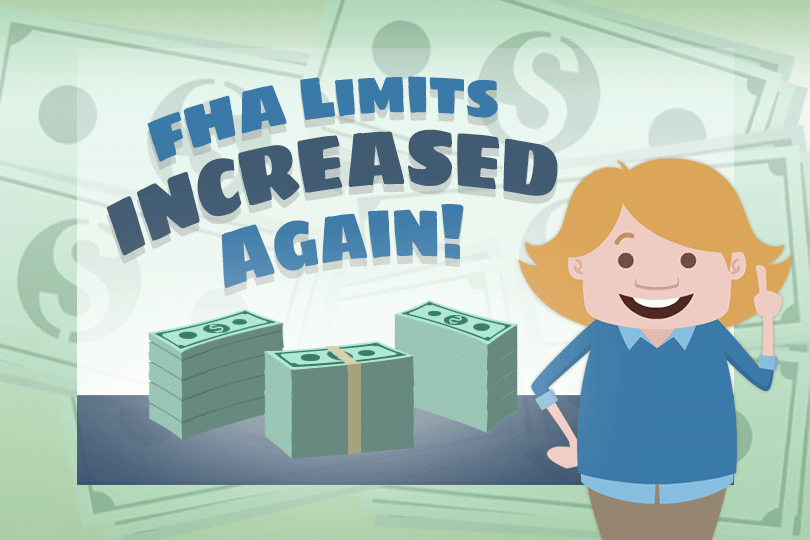Why Do FHA Loans Have Borrowing Limits?
October 14, 2023
FHA loan limits serve as a crucial mechanism to balance financial sustainability, regional variations in housing costs, and the agency's mission to promote homeownership, particularly for those with limited financial resources.
Financial Stability
FHA is a government agency that provides mortgage insurance to lenders, allowing them to offer loans with lower down payment requirements and more flexible credit criteria. If a borrower defaults on their FHA mortgage, the government steps in to protect the lender. To maintain the financial stability of the FHA program, the agency sets loan limits to prevent excessive risk exposure. These limits help ensure that FHA can cover potential losses if a default occurs.
Protecting Taxpayer Funds
FHA operates with the backing of the U.S. government, and its insurance program is funded by both premiums paid by borrowers and the backing of taxpayer funds. Loan limits exist to help ensure that the fund remains adequately capitalized to cover claims without relying heavily on taxpayers.
Regional Housing Costs
Housing costs can vary significantly across the United States and loan limits are adjusted to reflect regional variations. Major cities and expensive real estate markets will have higher FHA loan limits to help borrowers access affordable financing. As one might expect, areas with lower housing costs have lower loan limits.
Promoting Homeownership
The FHA was created to facilitate homeownership for lower- and moderate-income individuals and families. By setting loan limits, the FHA can target its support to those who might not otherwise qualify for conventional financing so they can purchase homes in markets with affordable housing options.
Loan limits are updated annually to reflect changes in housing costs and market conditions. It's important to note that the specific loan limits can vary by county or metropolitan area. Borrowers looking to utilize FHA loans should check the current loan limits in their area to determine the maximum loan amount they can qualify for.
------------------------------
RELATED VIDEOS:
Home Equity Can Secure Your Second Mortgage
Consider the Advantages of Discount Points
FHA Limits are Calculated and Updated Annually

FHA Loan Articles
May 14, 2025When you buy a home with an FHA mortgage, you must pay for both mortgage insurance and insurance to protect your property while paying on the loan. There are important nuances to these insurance policies to know before you start. What's the difference between insurance against water damage and flood insurance? That's just one example of the "hidden" expenses of buying your new home to budget for.
May 13, 2025Buying a home with an FHA mortgage means you'll need to know the FHA guidelines about the types of properties you can purchase with an FHA single-family home loan for residential purposes. How well do you understand these rules? Are you truly ready to start house hunting? We examine some key aspects of the process.
May 12, 2025FHA single-family home loans require a minimum 3.5% down payment for typical transactions. Saving for this requires planning and dedication, but it’s not impossible to save enough to make the down payment. How do people typically budget and save for this? Your financial needs and goals will play a big role in how much you decide to set aside for your new home, but here are some options to think about...
April 30, 2025 In a previous post, we discussed why FHA borrowers should carefully consider whether paying for discount points truly serves their best interests, focusing on factors like short-term homeownership, opportunity cost, FHA mortgage insurance, and the prevailing interest rate environment. Discount points are an option for borrowers willing to pay a fee to lower the interest rate by a set amount. This is not right for all borrowers, and you don't want to pay for points you won't benefit from during the loan term.
April 29, 2025Are you considering buying a home with an FHA loan? You'll likely talk to your participating lender about FHA loan "discount points" – fees you pay upfront for a lower interest rate on your mortgage. The idea behind discount points is a straightforward exchange: you spend money today to reduce your interest rate. Typically, one point equals one percent of your total FHA loan. In return, your interest rate might decrease by an amount you and the lender agree upon.







